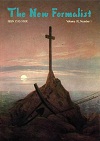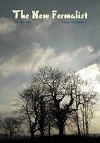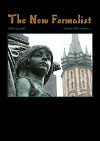Ukiyo—The Floating World (1950)
Recall the night, warm after rain, in Tokyo;
a street in Shinjuku where beauty is for show
and sale; where teashops not for tea are lantern-lit.
At every doorway girls like silken flowers sit
or stand; kimonos scarlet, gold brocade, maroon—
so young, too young, they smile but do not importune
as you, by chance the only passer-by just then,
review their faces.
Bamboo flute and samisen
are playing softly somewhere out of sight—
You stop—
Your breath suspends for alone there before a shop
A child so lovely tears come to your eyes unbid
is bowing toward you, small hands crossed, her face
half-hid
The image freezes: fixed forever is the night
the moment she looks up at you and smiles through fright.
King August of Mokil Speaks
Over the starlit open sea we come
in canoes of white and blue to Ponape.
We mark Polaris’ height with upright thumb:
the only guide we need to keep the sea-way.
Mokil to Ponape is many miles;
but our craft are agile and as swift as gulls
who wing at will among these happy isles;
we’ve wider sails than most, and keen-carved hulls.
Outriggers skim from crest to white-lipped crest
and lift in speed on moonward flowing swells.
Throughout the night the mothering wind holds west;
at morning light we hear the mission bells
and sight, far off, the Sokhes sentry rock
arising from the sea’s sun-misted breath,
pandanus foresting his gibbous back
and silhouetted palms about his chest.
He’s lord upon the wide Pacific blue
that lays eternal siege to him, and roars
with furious foam on reefs deployed below,
then crawls to lick his mangrove-rooted shores.
The mission wall is crumbling under vines.
Good Father Costigan waits by the gate.
We come to have his blessing, tell our sins,
and hear how God’s love conquers, soon or late.
I come to pray for seven hundred souls
who call me king: Maria, queen of all,
protect my people; save our fragile atoll
when typhoons rage and atom fires fall.
Fredericksburg
See them there, in their ranks on the Heights of Marye in the morning,
riflemen ranged to repel any charge to their wall.
See him there, the gray chieftain, brooding, breast-burdened and quiet
in grief for the yesterday fallen, for those who will fall.
Hear them below in the town, the confident voices
of boys from the north and young officers new to their bars;
none knowing what scything awaits on the meadows above them,
what fecklessness reigns in the minds of their leaders with stars.
Come away, for the outcome we know from the pages of history,
how the rebels in rags took the victory that day at small cost;
but weep for the loyal and brave, the lives that were wasted,
and sigh for the chieftain whose struggle was already lost.
Nogiku no Haka
(The Grave of a Wild Chrysanthemum)
—after the novel by Ito Sachio
October comes but does not linger long:
‘The Later Moon’ we called this season years
ago, so many of them gone, yet strong
as yesterday such boyhood visions rise
before me that I cannot stop my tears.
It was as fair a moonlit night as this;
my nearest cousin, Tamiko, and I
descended from our garden on the heights.
No wind disturbed the shadowing pines; the sky
was shimmering with sheer and silken lights,
and bright across the meadow-grass below
the wild nogiku scattered skeins of white.
No sound but sandalfall as Tamiko,
her insubstantial shoulders basket-bowed,
trudged a step before me on the road.
How gracefully her shining sidelocks fell
encircling her ears; her cheeks how fair;
her neck how elegantly formed and well
displayed beneath her dark and lustrous hair.
Too greatly taken by the sight, I spoke,
or rather, like a nervous frog, I croaked;
and at so strange a noise Tamiko turned.
—Masao, what’s the matter?—
Though I burned
with shame I pled our burdens:
—Let us rest
here by the road. From here the view is best.—
She shook her head; we would, returning late,
assuredly be questioned at the gate.
She feared their questions, and her eyes grew wide.
I said
—What need have we, to such as they,
to give excuses? What have we to hide?—
She yielded, and on straw beside the way
we rested. Moonlight slanted through the trees
and on the open field shone full as day.
In honor of the scene she wished we might
sing together, for on such a night
even such illiterates as we,
she said, can still forget our misery.
We sang a simple song or two, embraced
artlessly as playmates do, enlaced
our fingers, leaned together; in which style
we grew distracted, silent for a while,
and in the passage of that while, nearby,
a line of calling geese traversed the sky
crying
—Follow, follow us; beyond the straits
the winds are warm and sweet; there comfort waits.—
But plucking up a flower with a sigh,
Tamiko said
—Look here, Masao; see
the spindly white nogiku: this is me:
almost too weak to stand, and cannot fly.—
Then we heard the crickets’ chilly chirr
and in our shrine of shadow felt the stir
of night winds. We had tarried far too late;
the splendid moon stood low upon the plain
before we reached the village and our gate,
whereat we breathed as one. A common pain
rose in our bosoms, for we guessed our fate;
and she, more wise than I, surmised it all:
the stern inquiry and the dread decree
of sundering, and that our childish plea,
of lingering to view the moon, must fall.
Again and yet again October’s come
and gone before I know it, but no more
on Tamiko’s bright face and brimming eyes
shines the Later Moon. Tamiko lies
these forty autumns in a mossy bed,
of forced marriage and of childbirth dead
on Chiba’s desolate and stony shore
attended only by the wild chrysanthemum.



